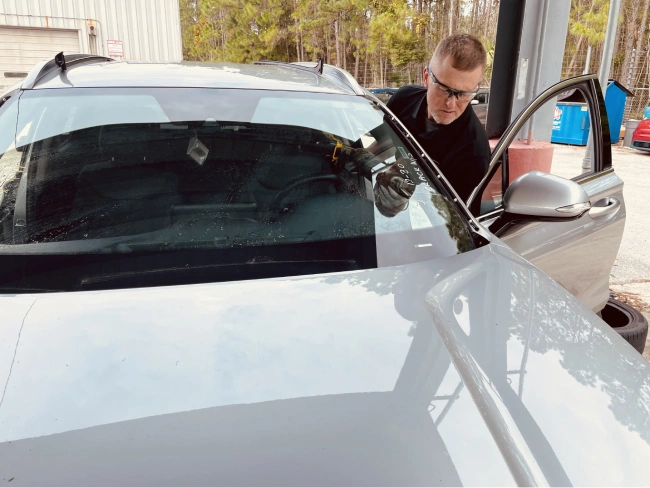Welcome to Arrow Auto Glass, your trusted partner for exceptional auto glass services in Morristown, New Jersey. We take pride in offering top-tier Morristown auto glass repair, Morristown windshield replacement, and Morristown windshield repair services to ensure the safety and satisfaction of our valued customers.
At Arrow Auto Glass in Morristown, NJ, we provide a comprehensive range of auto glass services to meet diverse needs. Our highly skilled technicians employ state-of-the-art tools and techniques to deliver precise and efficient solutions for your auto glass concerns.
Morristown, NJ, is a thriving city with its unique set of hazards for your vehicle’s auto glass, including:
Regular inspections and prompt repairs are essential to ensure the longevity and safety of your auto glass in Morristown.
When you select Arrow Auto Glass in Morristown, NJ, you can expect:

At Arrow Auto Glass, we understand the fast-paced lifestyle of Morristown residents, which is why we proudly offer hassle-free mobile auto glass repair services. Our skilled team can come directly to your preferred location, whether it be your home, workplace, or any other spot in Morristown, to provide reliable windshield replacement and auto glass repair services.
As your top source for auto glass repair in Morristown, we are dedicated to providing trustworthy and professional services that prioritize your convenience and safety. Don’t allow auto glass damage to ruin your day – contact Arrow Auto Glass for all your Morristown windshield repair or windshield replacement needs.
With our help, you’ll experience top-quality auto glass services that are tailored to meet your unique requirements. Schedule your appointment with confidence and reap the many benefits of our professional and efficient services.
Basking Ridge, Dover, Chester Township, Flanders, Livingston, Madison, Parsippany, Plainfield, Summit, and more.